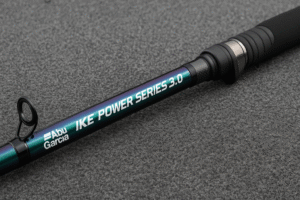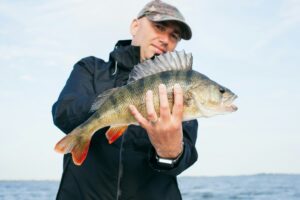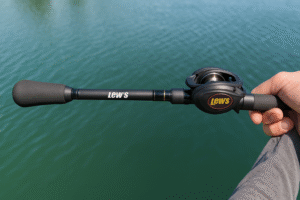Freshwater Fishing for Beginners
There are over 40 million freshwater fishing enthusiasts in the U.S., and guess what? That number keeps growing. Why? Because freshwater fishing is awesome! Whether you’re after largemouth bass, walleye, crappie, or muskies, there’s a whole underwater world waiting for you. If you’re new to this fun adventure, don’t worry—we’ve got your back. Here’s a simple guide with gear and location tips to help you catch your first (or biggest) fish!
Getting Started: Basic Freshwater Fishing Gear
If you’re a beginner, keep it simple. Think of fishing like learning to ride a bike—you don’t start with mountain trails; you start with training wheels. Focus on the basics, and you’ll be reeling in fish before you know it.
Rods and Reels
For starters, go for a 6’6” spincast rod with a 150-size spincast reel. This is known as a combo rod, perfect for beginners because it’s versatile. You can try different fishing techniques without switching gear. Plus, it’s budget-friendly.
Spinning rods are also a solid choice. They have guides that face down, and their design helps the line flow smoothly. This makes it easier to feel when a fish bites. Use your dominant hand to grip the rod, and try a two-handed cast to improve accuracy.
Baitcasting rods are for when you’re ready to step up your game. The reel sits on top with a trigger grip, giving you better control, especially when a big fish is on the line. They’re great for long-distance casting and precision.
Fishing Line
Stick with a 10 lb. monofilament or nylon line. Mono is cheap, easy to handle, and holds knots like a champ. Nylon is also a beginner-friendly option, offering versatility and smooth casting.
Bait and Lures
Live bait like worms and minnows is a beginner’s best friend. They’re easy to use and irresistible to fish. Just grab some hooks, bobbers, and small weights to set up your line.
If you’re feeling adventurous, try these lures:
- Soft 5” stickbait: Great for Texas rigs or wacky rigging.
- 3/8oz spinnerbait: Versatile and works around any cover.
- Shallow-running crankbait: Dives 0-5 feet, perfect for various waters.
- Hollow body frog: A topwater lure that’s super effective around grass.
Always carry scissors, pliers, or forceps to help remove hooks from your catch.
Tackle and Storage
You’ll need something to carry your gear. The Urban Angler Backpack is perfect—it’s compact, holds all your essentials, and even has a hydration pack to keep you refreshed. Don’t forget sunscreen, bug spray, and a spare hat to stay comfortable outdoors.
Where to Fish
Finding the right fishing spot is like hunting for treasure. Start with your state’s Department of Natural Resources (DNR) website for local fishing reports. Tackle shops are gold mines of information, and there are tons of free fishing apps and message boards to explore.
Pond Fishing
Ponds are great for beginners. You might catch bluegill, crappie, sunfish, catfish, or largemouth bass. Just make sure you have permission if it’s private property. Live bait works best, especially nightcrawlers and minnows. Walk quietly along the shore to avoid scaring the fish, and cast near structures like submerged logs or docks.
Lake Fishing
Lakes offer a bigger challenge. You might need a boat to reach deeper spots where fish like to hide. Use live bait first, then switch to lures if needed. Look for stumps, weed beds, and drop-offs—these are fish hotspots.
Seasons and Weather: How They Affect Fishing
Weather and seasons play a big role in fishing. In winter, fish are sluggish, so they bite more during the warmest part of the day. In summer, early mornings and evenings are best because fish avoid the midday heat.
Overcast and rainy days are perfect for fishing. Fish are more active in low light, and rain cools the water, making fish more likely to bite. Just wear the right gear to stay dry and comfy.
Joining a Local Fishing Club
Want to get better fast? Join a local fishing club. You’ll meet experienced anglers, discover new spots, and pick up tips you won’t find online. Plus, it’s fun to share your fishing stories with people who get it.
- Always follow local fishing rules.
- Pack snacks and plenty of water.
- Clean up after yourself to keep nature beautiful.
Freshwater fishing is more than a hobby—it’s an adventure. Grab your gear, find a spot, and enjoy the thrill of the catch. Good luck out there, and happy fishing!





